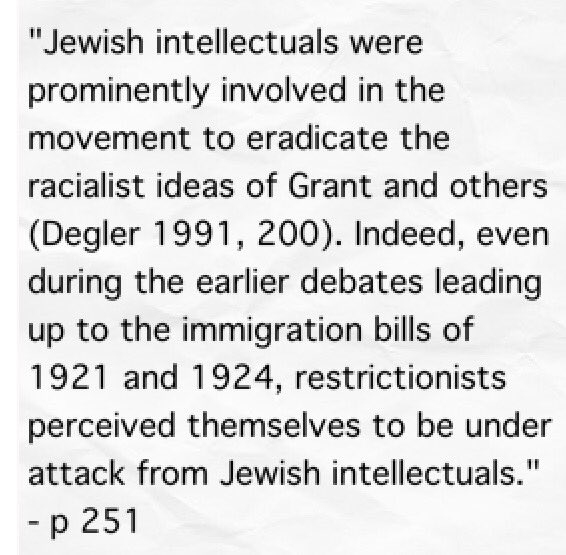
1/ “The ideology of racial equality was an important weapon on behalf of opening immigration up to all human groups.” - p 252
2/ “For example, in a 1951 statement to congress, the AJCongress stated, ‘The findings of science must force even the most prejudiced among us to accept...that intelligence, morality, and character, bear no relationship whatever to geography or place of birth.’” - p 252
3/ “The statement went on to cite some of Boas’s popular writings on the subject as well as the writings of Boas’s protege Ashley Montagu, perhaps the most visible opponent of the concept of race during this period.” - p 252
4/ “Montagu, whose original name was Israel Ehrenberg, theorized in the period immediately following WWII that humans are innately cooperative, but not innately aggressive, and there is a universal brotherhood among humans...” - p 252
5/ “In 1952 another Boas protege, Margaret Mead, testified before the President’s Commission on Immigration and Naturalization (PCIN) that ‘all human beings from all groups of people have the same potentialities...’” - p 252
6/ “Another witness stated that the executive board of the American Anthropological Association had unanimously endorsed the proposition that ‘all scientific evidence indicates that all peoples are inherently capable of acquiring or adapting to our civilization.’” - p 252
7/ “By 1965 Senator Jacob Javits could confidently announce to the Senate during the debate on the immigration bill that ‘both the dictates of our consciences as well as the precepts of sociologists tell us that immigration...
8/ as it exists in the national origins quota system is wrong and without any basis in reason or fact for we know better than to say that one man is better than another because of the color of his skin.’” - p 252-253
9/ “The intellectual revolution and its translation into public policy had been completed.” - p 253
• • •
Missing some Tweet in this thread? You can try to
force a refresh









